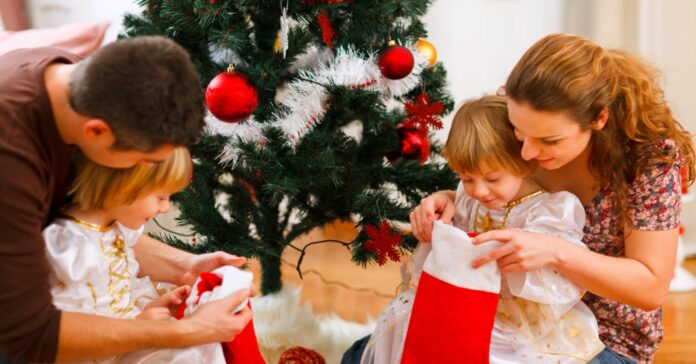Source: Gustavo Fring/Pexels
Should you tell your children the truth about Santa Claus? Years ago, I asked readers, if so, when?
In our house, on Christmas Eve, we left a letter and cookies for Santa and a few carrots for the reindeer. Only crumbs remained on the plate Christmas morning, gifts piled neatly under the tree. Yes, we endorsed the Santa Claus myth. And, as our child got older, we had someone else write a quick note from Santa to our son, thinking he might recognize our handwriting.
Other parents go further: Some employ Elf on the Shelf in elaborate ways. Each child has his own Elf; children cannot touch or “speak” to the Elf, for example. Others sprinkle glitter and oats on the lawn, purportedly to attract the reindeer and sled to the house.
A new two-part study drills down into the question of how significant a role parents should play in promoting Santa Claus or in dismantling the myth. Part one of the study asked 48 children and their parents about their engagement with the myth and when and how their children discovered the truth. Part two asked 383 adults to reflect on their experiences and feelings when discovering Santa is not real.
The study, which was published in the journal Developmental Psychology in November, raises questions for parents today about how much to promote the myth and how and at what age children realize Santa Claus, like the Tooth Fairy, is a fantasy. How do children learn the truth?
Interestingly, in responses from participants in both parts of the study, roughly one-third of children and half of the adults who responded had negative emotions about their discovery when parents strongly promoted the myth.
The question then becomes, do those feelings last, and do they affect parent-child trust?
The Truth Comes Out
This study and related research confirm that children’s disbelief typically surfaces around age 7 or 8, although the study suggests the more parental promotion of Santa, the later the reality sets in.
Once skepticism takes hold, children look for clues and confirmation that Santa is made up. Your child might start to wonder how Santa can deliver gifts to all the children in the world in one night, how he can fit down your skinny chimney, or why the Santas he sees look different from one another. Common sense, a bit of sleuthing, and logic go a long way in unraveling the myth independently. But then there’s also an older sibling or friend who spills the beans or honestly answers the child who asks, “Is Santa real?”
Typically, more than half of children who are doubtful figure this out on their own. Others are told by parents or a little of both, according to the Developmental Psychology study. The researchers report that 76 percent of the children trusted their parents the same since learning the truth; only 21 percent trusted them less, and 2 percent trusted their parents more.
Santa’s Future in Your House
While some parents and children worry that perpetuating Santa Claus could erode trust, others think that giving up the Christmas goose could take much of the fun out of the holiday. One mother who felt strongly about being honest told her 5-year-old the truth when asked, only to have her daughter scream at her, “Mom, you ruined Christmas for me.” Her upset didn’t last long, her mother told me.
Parents in both camps (pro- or anti-Santa myth) can take heart in knowing that negative responses to learning the truth about Santa were, like the 5-year-old, short-lived. Even the children and adults who felt deceived by their parents said that they would perpetuate the myth with their own children.
In summing up finding out the truth, one young boy in the study told his parent that while he was sad and disappointed that “the magic wasn’t real, he was amazed that the ‘whole world’ was able to keep this secret going, and he fell for it.”
Roughly 44 percent of the child participants said they were happy with their discovery because “they would still get presents and because they were right about what they thought [disbelief] about Santa.”
Will you promote or prolong the Santa myth in your house? Before you decide, check out the benefits of believing in Santa Claus.
Facebook image: Alliance Images/Shutterstock
